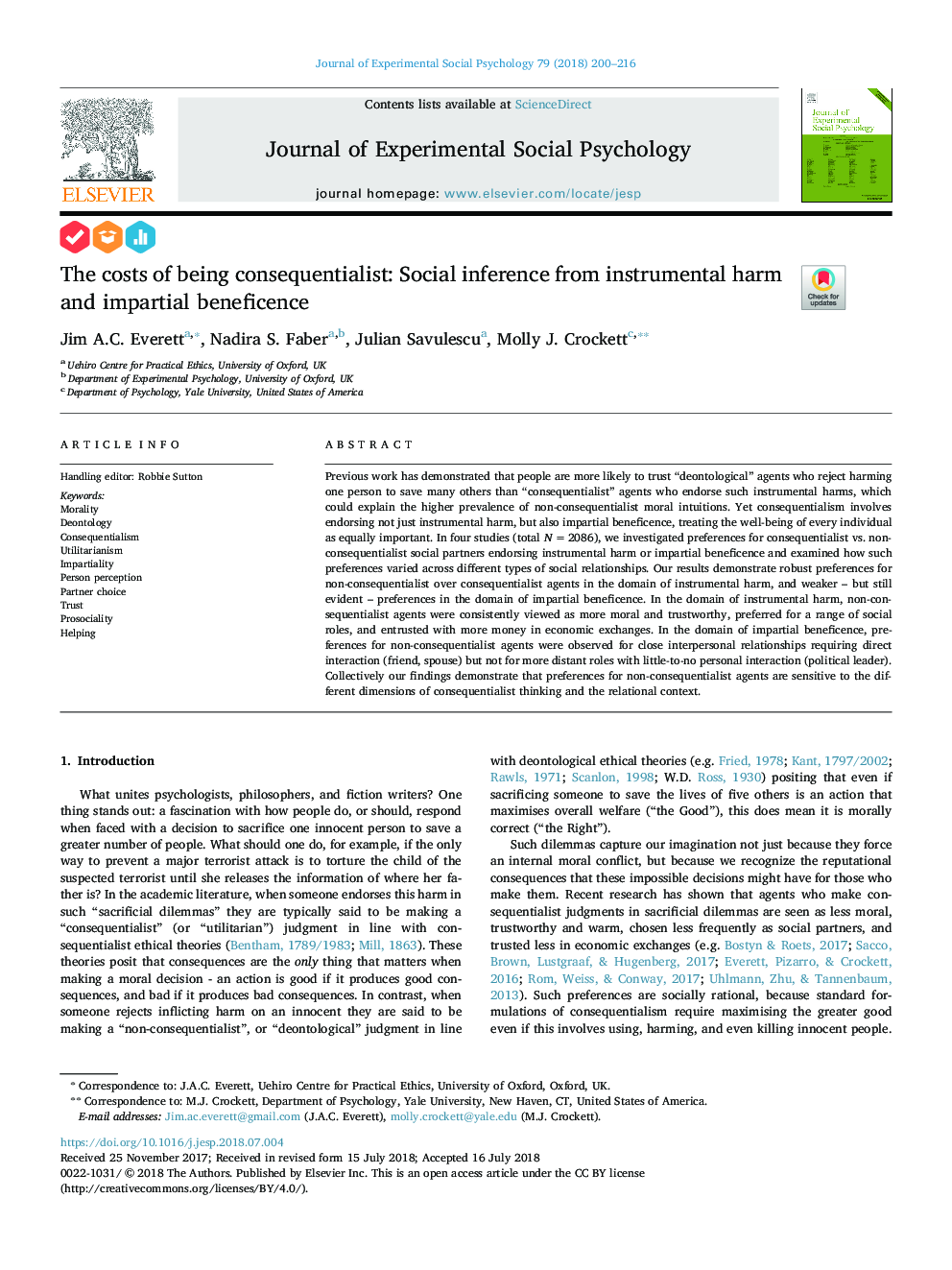| Article ID | Journal | Published Year | Pages | File Type |
|---|---|---|---|---|
| 11004710 | Journal of Experimental Social Psychology | 2018 | 17 Pages |
Abstract
Previous work has demonstrated that people are more likely to trust “deontological” agents who reject harming one person to save many others than “consequentialist” agents who endorse such instrumental harms, which could explain the higher prevalence of non-consequentialist moral intuitions. Yet consequentialism involves endorsing not just instrumental harm, but also impartial beneficence, treating the well-being of every individual as equally important. In four studies (total Nâ¯=â¯2086), we investigated preferences for consequentialist vs. non-consequentialist social partners endorsing instrumental harm or impartial beneficence and examined how such preferences varied across different types of social relationships. Our results demonstrate robust preferences for non-consequentialist over consequentialist agents in the domain of instrumental harm, and weaker - but still evident - preferences in the domain of impartial beneficence. In the domain of instrumental harm, non-consequentialist agents were consistently viewed as more moral and trustworthy, preferred for a range of social roles, and entrusted with more money in economic exchanges. In the domain of impartial beneficence, preferences for non-consequentialist agents were observed for close interpersonal relationships requiring direct interaction (friend, spouse) but not for more distant roles with little-to-no personal interaction (political leader). Collectively our findings demonstrate that preferences for non-consequentialist agents are sensitive to the different dimensions of consequentialist thinking and the relational context.
Keywords
Related Topics
Life Sciences
Neuroscience
Behavioral Neuroscience
Authors
Jim A.C. Everett, Nadira S. Faber, Julian Savulescu, Molly J. Crockett,
